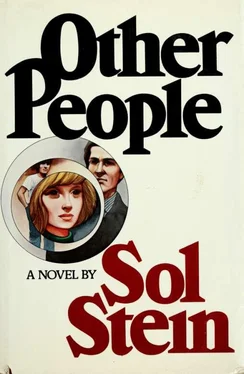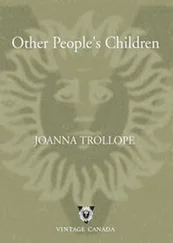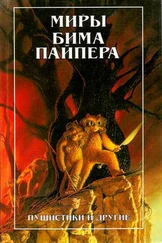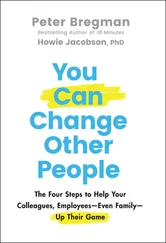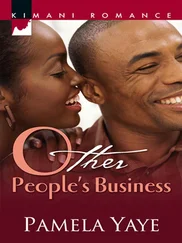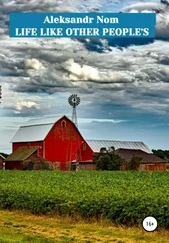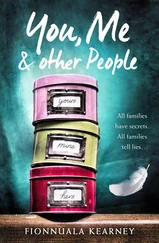in memory of
TONY GODWIN
for whom this book was being written
and for
CHARLES L. BRIEANT, Jr.
friend and mentor in the law
I am grateful for the counsel of three editors who saw me through the several drafts of this book, Patricia Day, Michaela Hamilton, and Marilee Talman, and to Judge Charles L. Brieant, Jr., whose voluminous notes on the law once again went beyond the demands of friendship. Tony Godwin, for whom this book was being written, died suddenly during the early stages of the work, but his severe requirements continued to instruct me. I want to thank also Dr. Alan Tulipan, who graciously gave his time, and Sheila Silver, a chance acquaintance who sent me a long letter that turned out to be more important to my purpose than she could know.
When I telephoned Thomassy that morning in March of 1974 and asked him to lunch, I counseled myself to muster a casual voice. As I waited for him to get on the line, I thought the protections are gone . I had reluctantly perceived that civil and well-educated people now accepted gratuitous violence against strangers as ordinary. Therefore I had to conclude that George Thomassy had chosen an appropriate profession in criminal law and I had not.
Thomassy misinterpreted my casualness. He was preparing for trial, he said, and wasn't taking time for restaurant lunches.
"I wouldn't mind joining you for a sandwich in your office," I said, hoping my insistence wouldn't seem pushy.
Thomassy said absolutely nothing. It wasn't ill breeding. I took it to be a technique for extracting the most information without the commitment of even an acknowledging word.
"George," I went on, "I wouldn't trouble you about something trivial. It's about a case."
"Yours?"
I realized he thought that I had run into a noncivil aspect of some client's case and was seeking his advice.
"The victim is mine, not the case," I said.
He waited for me to go on.
"It's my daughter, Francine."
Again, no sound from him.
"It's rather…"
He could have said Go on.
"George?"
He acknowledged his presence with a sound, but no more.
"Look George, hell, she's been raped."
At last he spoke. "Does she know the man?"
"Yes."
"Jesus, she's just a kid."
Any other lawyer of my acquaintance would have immediately said I'm so sorry .
"Francine is twenty-seven."
"When did this happen?"
"Tuesday," I said.
"Is she all right?"
It was ridiculous for me to expect from Thomassy the ritual responses I could hear from my friends. His questions were not etiquette. He was already at work.
"I said is she all right?"
"Yes," I said. Then, "No. She's frightened. The analyst she's been seeing suggested she consult a lawyer. I guess I'm the only lawyer she knows. She hadn't intended to tell me."
"Has she been to a hospital?"
"Yes. No serious damage. To her body, that is."
"Did they take the tests?"
"I didn't think to ask." The truth is I wouldn't have known to ask.
"Has she been to the police?"
"Yes. They took some notes. She's worried sick."
"Why?"
"The man lives in the apartment over her."
That was when Thomassy said, "All right, let's have lunch."
"When?" I asked.
"How about today?"
I didn't know whether we'd been disconnected or Thomassy'd simply hung up. I hated the idea of calling back, but I did.
"George, shall I bring Francine to lunch?"
"No."
"I thought I'd save you time."
"I want to hear what she told you without her around."
It's a different world, criminal law. "What time?" I asked.
"Twelve-thirty's okay."
"At your office?"
"Meet me at Dudley's," he said.
When I report to you that Thomassy is regarded by other lawyers like myself as the best criminal lawyer in Westchester County, what is it I mean by "the best"? When a man runs a mile faster than any living human has heretofore, he has achieved an absolute, but how few of life's activities — art, pleasure, the law — can be so precisely determined! I remember William York Tindall used to say that his idea of perfection was to be able to put his legs up after a fine meal and listen to Mozart while smoking a Romeo and Julieta cigar. I knew exactly what he meant, though Mozart was by no means my favorite composer, and since the cigar makers fled Havana, Romeo and Julietas are not the smoke we once prized. If I had to be restricted to seeing one painting for the rest of my life, even if it was a Rouault or a Rembrandt, I should soon weary of it, but I can think of a small collection, perhaps a dozen or so, that might keep my eyes content. However, if you have been involved in a crime, and you need to deal with the law, you'll find that very few private individuals can hire a battery of attorneys; you usually pick one, and if the matter is important, you narrow your choice to the best. Hence Thomassy.
At Yale, even before I entered the Law School, it was made clear to me that all of the lawyers who inhabited the social echelon I came from without exception practiced civil law. Criminal lawyers, even the best, had a touch of taint. Their affairs caused them to associate not with the kind of people they would invite to their homes, but with labor racketeers, embezzlers, Sicilians, and worse. Moreover, criminal law was comparatively unremunerative except for those few lawyers who were primarily actors or outlaws.
And so, since I knew what was expected of me, I prepared myself for a career of luncheons in executive dining rooms in which, even today, women are not permitted with grace, and for the gentle world in which adversaries were friends. When we met, we always talked of something else before we got down to business. The stakes in our kind of law are always measured, ultimately, in dollars. In criminal law, the stakes are usually a man's freedom, and under some conditions could mean a man's life.
Nevertheless, I was fascinated by criminal law, and read the cases as if they were a form of specialized pornography contrived for my pleasure. I kept in touch with a few criminal lawyers so that, on occasion, I could derive some vicarious satisfaction from the brinksmanship of their cases. Above all, I maintained my now decade-long acquaintanceship with Thomassy, who practiced in the county in which I had always made my home. I sometimes thought, if my ancestors had come from Armenia instead of England, and if I had the perfectionist zeal that animates a man moving up from the bottom of the ladder rather than the ennui that lazies one at the top, I might have been like Thomassy. In America we toy with the idea that because we are a highly mobile society, we are not greatly stratified; it is supreme nonsense. In a way we are more class conscious than the Europeans because you cannot always pigeonhole an American by his accent or dress, and with newcomers you are compelled to watch carefully for the telltale nuance. However, in all classes we share one addiction: we admire winners. We root for the underdog so long as he is pushing for the top. Pity never excites us as much as triumph. We think of ourselves as sportsmanlike, but what we do is savagely tear down goal posts when our team wins.
The very naive think winning unimportant. When trouble strikes, they are quick to change their minds. I was once involved in a matter that affected not only my client but also the national interest. The matter was out of my field because money was not the issue. Moreover, it was a matter in which the outcome could not be compromised; we either won or lost totally. I phoned Edward Bennett Williams in Washington, and though we had never spoken before, within two minutes of hearing the subject of my concern, he said, "Come on down." He took the case and, of course, won it. But most criminal matters — the felonies that attract our interest in newspapers and worry us when they invade our neighborhoods — are tried locally, and one wants as advocate a lawyer who knows the individuals and customs of the courts in the immediate area. Like the nearly million other inhabitants of Westchester, if I were accused of a crime, particularly if I were guilty, I would want only Thomassy to represent me. I dread the possibility that Thomassy might become a judge and hence unavailable to me except as a friend. Besides, the quality one pretends to look for in a judge is fairness. That is not Thomassy's virtue. The boxers and ball players whom we adulate are known for their victories and not for their sportsmanship.
Читать дальше
